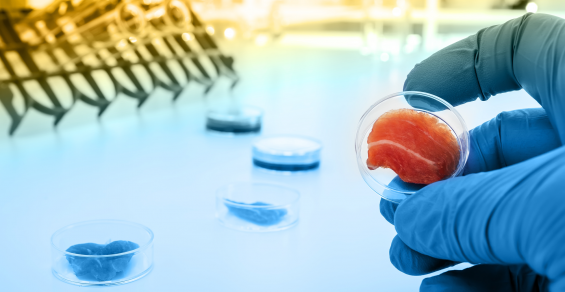I’m terribly guilty as a cattle rancher. Don’t get me wrong; I believe in what I do, and I know the integrity and quality of people involved in this business. As a result, while I occasionally read the propaganda and the falsehoods that are accepted as truth about our industry, I also tend to dismiss them. Truth has a way of always winning out, right?
Well, in today’s world science and facts are not what they used to be. Truth is some malleable concept that is determined by consensus. Truth is determined by those who are the most effective in delivering their version of it. And that’s why I’m guilty as a rancher.
I subscribe to Inc. magazine, and on its front cover the lead story was titled “A World Without Slaughter,” which focused on the revolution in lab-grown meat. The focus of the article was on a small startup company called Memphis Meats. Their goal is to grow meat in a lab.
If you are like me, your first reaction is to laugh. They have been successful growing meat in a lab, and while it currently can’t compete from a cost or a taste standpoint, that doesn’t mean the science can’t get there. The investors are pretty impressive and include people like Bill Gates, Richard Branson and Jack Welch to name a few.
Our business is big business. From 2001 to 2014, global beef production has increased by 15%, pork production by 34%, and poultry production by a whopping 71%. Feeding the world is big business, and the protein business worldwide is in the trillions of dollars
That’s a market to entice anyone. The technology has been around for over 20 years, but they are just now reaching the price point and scale where it is potentially feasible. However, the real scary part isn’t the technology as much as it is the story they are pushing. Whether some of the data continues to come from the fully discredited UN report issued decades ago is irrelevant.
Here are just some of the comments made in the article. “More than 25% of the Earth’s available landmass and freshwater is an environmental and public health catastrophe. Livestock account for 14.5% of greenhouse gas production—more than all transportation combined. As meat demand soars, virgin rainforest gets razed to grow feed, and fresh-water sources are diverted from drought-prone regions. Overcrowded pig and poultry farms are reservoirs for global pandemics; animals raised in them are pumped full of antibiotics, spurring the rise of drug-resistant superbugs. “
We know these accusations are false. But again, this is what people in the world are being told.
Just when I think it is time to simply focus on my own little world and orbit, it becomes increasingly obvious that we must invest mightily in telling our story and in getting the word and the truth out. It is true that our biggest challenge is feeding a growing population more than competition from lab meat. But as we have seen, science is moving rapidly and perhaps more importantly, consumers’ perceptions are as well. By the way, in case you weren’t aware, both Cargill and Tyson Foods are investing in these technologies.




Leave A Comment